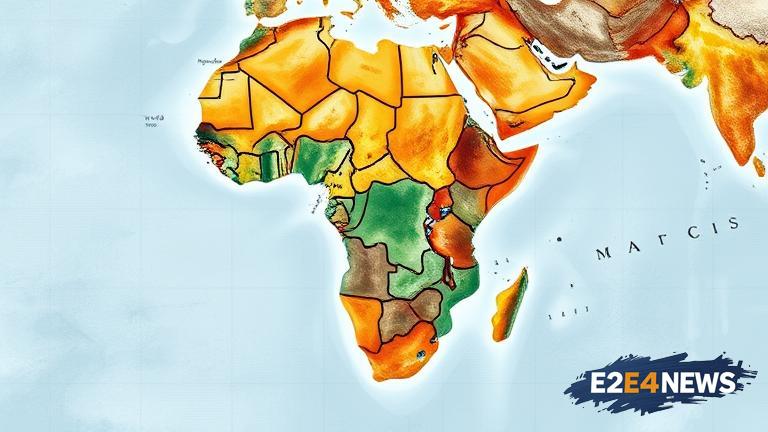Africa, a continent often misunderstood and misrepresented, is home to a diverse array of cultures, languages, and landscapes. With a population of over 1.3 billion people, Africa is a significant player in the global economy and politics. However, the continent’s cartographic and demographic reality is often distorted, leading to a lack of understanding and appreciation for its true nature. The traditional map of Africa, which has been used for centuries, is based on the Mercator projection, a method that distorts the size and shape of the continent. This has led to a misconception that Africa is smaller than it actually is, with some estimates suggesting that it is larger than China, the United States, and India combined. Furthermore, the demographic landscape of Africa is also often misunderstood, with many assuming that the continent is predominantly rural and underdeveloped. However, the reality is that Africa is home to many thriving cities, with Lagos, Nigeria, and Cairo, Egypt, being two of the largest urban agglomerations in the world. The continent is also experiencing rapid urbanization, with many countries investing heavily in infrastructure and development. Despite these advancements, Africa still faces many challenges, including poverty, inequality, and lack of access to basic services such as healthcare and education. The continent is also home to many diverse cultures and languages, with over 2,000 languages spoken across the continent. The history of Africa is also complex and multifaceted, with many ancient civilizations, such as Egypt and Nubia, having played a significant role in shaping the continent’s identity. In recent years, Africa has experienced significant economic growth, with many countries, such as Ghana and Rwanda, making significant strides in development. The continent is also rich in natural resources, including oil, gas, and minerals, which has attracted significant investment from around the world. However, the extraction and exploitation of these resources have also raised concerns about environmental degradation and social justice. The role of international organizations, such as the African Union and the United Nations, has been crucial in promoting development and cooperation across the continent. Despite these efforts, Africa still faces many challenges, including conflict, corruption, and lack of good governance. The media’s representation of Africa has also been criticized for being biased and stereotypical, perpetuating negative images and reinforcing misconceptions. To change this narrative, it is essential to promote a more nuanced and accurate understanding of Africa’s cartographic and demographic reality. This can be achieved through education, cultural exchange, and the promotion of African voices and perspectives. By doing so, we can work towards a more inclusive and equitable representation of Africa, one that reflects the continent’s true diversity and complexity. The future of Africa is bright, with many opportunities for growth and development. However, it is essential to address the challenges facing the continent, including poverty, inequality, and lack of access to basic services. By working together, we can create a more prosperous and equitable future for all Africans. The importance of understanding Africa’s cartographic and demographic reality cannot be overstated, as it has significant implications for development, policy-making, and international relations. It is essential to move beyond stereotypes and misconceptions, and to promote a more nuanced and accurate understanding of the continent. This can be achieved through a combination of education, research, and cultural exchange, as well as the promotion of African voices and perspectives. By doing so, we can work towards a more inclusive and equitable representation of Africa, one that reflects the continent’s true diversity and complexity.
